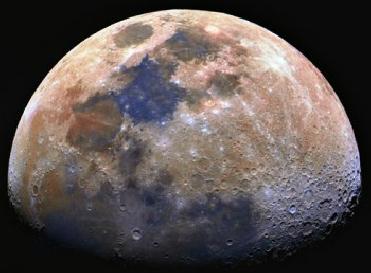
A file photo.
WASHINGTON (PTI): Just weeks after ISRO and NASA announced discovery of evidence of water on the lunar surface, the US Space agency is all set to bomb the Moon on Friday in search for hidden water in a controversial mission.
Scientists will see two spacecraft slamming into the moon's south pole at 9,000 kmph kicking up a 10-km-high shower of debris that National Aeronautics and Space Administration (NASA) hopes will confirm the presence of enough water necessary to supply future visits by astronauts.
Amateur astronomers in parts of the world may be able to view the impact through a telescope; for everyone else, the crash will be broadcast live on the NASA website along with early pictures of the lunar dust cloud during the dramatic mission. Within an hour of the impact, scientists will know whether water was hiding there or not.
The Indian Space Research Organisation (ISRO) announced last month that the country's first unmanned lunar mission Chandrayaan-I found evidence of water on the moon within a month after it was launched in October last year to make the first such discovery. NASA had also announced last month that it found evidence of water.
The crashing spaceship was launched in June along with an orbiter that is now mapping the lunar surface. LCROSS, short for Lunar Crater Observation and Sensing Satellite and pronounced L-Cross, is on a collision course with the moon, attached to an empty 2.2-tonne rocket that helped get the probe off the ground.
NASA is carrying out this mission to see if any water, ice or vapour is revealed in the cloud of debris. Discovering sub-surface ice is important because the ice could be used as a source of water for efforts to build a colony on the moon�s surface.
The mission itself continues to be controversial. Questions have been raised as to whether the crash-landing on the moon was necessary for science or will it be worth the damage done to the moon. Critics say the bombing mission interferes with natural forces.
But NASA says the bombing isn�t an act of hostility and it�s a part of our search for water in space.
According to reports, the spacecraft will hit that part of the moon where scientists believe billions of tonnes of trapped ice may be held.
In the early hours of Friday (GMT) LCROSS and its empty rocket will separate. At 1131 GMT (1701) the larger empty rocket will crash into a permanently dark crater and kick up a 6.2 mile high spray of debris. Railing just behind that rocket is the LCROSS satellite itself, beaming back to Earth live pictures of the impact and the debris plume using colour cameras.
It will scour for ice, fly through the debris cloud and then just four minutes later take the fatal plunge itself, triggering a dust storm one-third the size of the first hit.
The mission is a set-the-stage venture dreamed up by the NASA office that has been working on a 75 billion dollars plan to eventually return astronauts to the moon.
The two spaceships will smash into the moon at 9,000 km per hour, more than seven times the speed of sound. The explosion will have the force of 1.5 tonnes of TNT and throw 350,000 kgs of lunar dirt out of the crater. It will create a new crater inside an old one about half the size of an Olympic swimming pool.
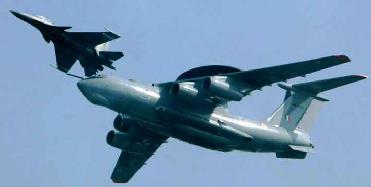 Previous Article
Previous Article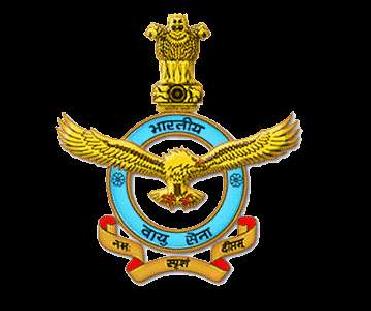 Next Article
Next Article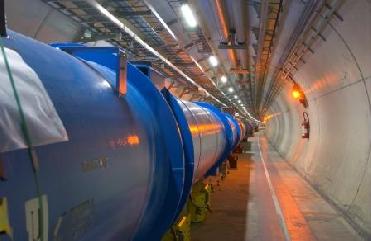
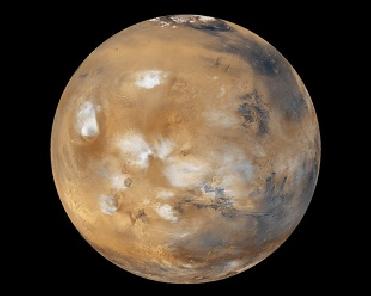
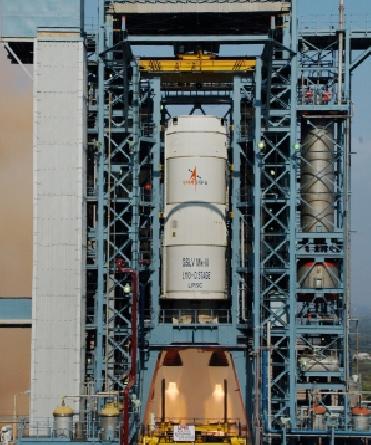










The Indian Air Force, in its flight trials evaluation report submitted before the Defence Ministry l..
view articleAn insight into the Medium Multi-Role Combat Aircraft competition...
view articleSky enthusiasts can now spot the International Space Station (ISS) commanded by Indian-American astr..
view article